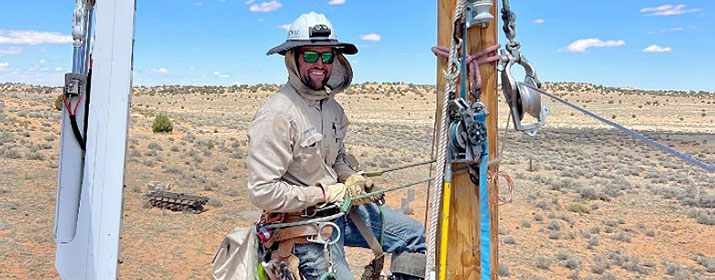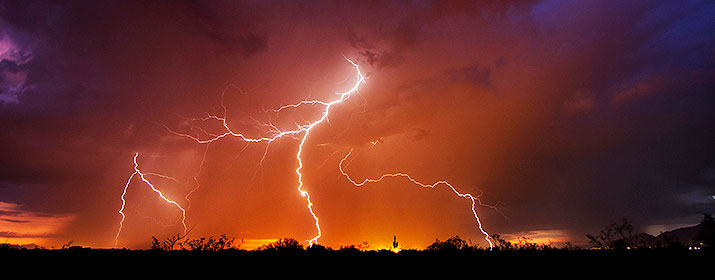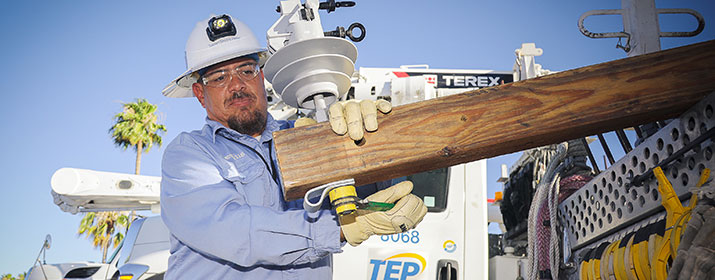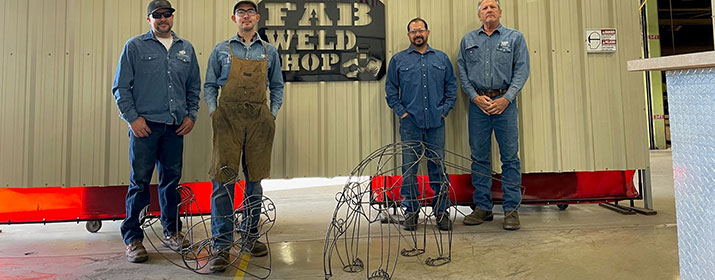
For many families in the Navajo Nation, the lack of electricity means driving more than an hour once or twice a week to get water. It means hot summers and cold winters without heating and cooling. It means using coolers with ice to preserve their food.
That’s why our company is supporting Light Up Navajo, an ongoing effort coordinated by the Navajo Tribal Utility Authority (NTUA) to connect isolated rural households to the electric grid. At the end of April, two four-man crews from TEP volunteered to set miles of poles and string conductors for the initiative.
They joined line workers from other states for two weeks outside of Tuba City in northeastern Arizona. The crews put in a lot of hard work digging, hauling, setting 60 poles, and stringing wire to serve about 8 homes.
Crew members were invited to volunteer for paid shifts on the project, which would keep them away from home for an extended period. “There was a lot of interest from the guys and we filled the slots right away,” recalled Line Construction Supervisor Jeremy Fenn. “They were really excited about the company stepping up to help get power to people who had never had power before.”
Apprentice Kyle Lundeen signed up for the ability to meet new people, build relationships and get a chance to experience another part of the state while helping others.
Fellow Apprentice Robert Montgomery agreed. “When I heard about it, I couldn’t believe there were people in the U.S. still living without power, so I wanted to help. We were helping a lot of elderly residents and a family with children. They couldn’t stop smiling and that was a really good feeling.”
Journeyman Lineman Chris Hengsteler said it was sobering to consider what many of us take for granted. He enjoyed working alongside other teams and appreciated the attention to detail and craftsmanship exhibited by NTUA, the public power utility serving the Navajo Nation.
One woman in particular had an impact on Journeyman Lineman Andres Rios. “She said she’d been waiting 50 years to have power and she was just so grateful. It was a sacrifice to be away from our families for two weeks, but it was great to be part of it because we touched their hearts and they touched ours also.”
The roughly 14,000 homes on the Navajo Nation without power make up 75 percent of all households in the U.S. without power. About 700 homes have received electricity as a result of the initiative, which launched in 2019 and is organized jointly by the American Public Power Association and NTUA.






